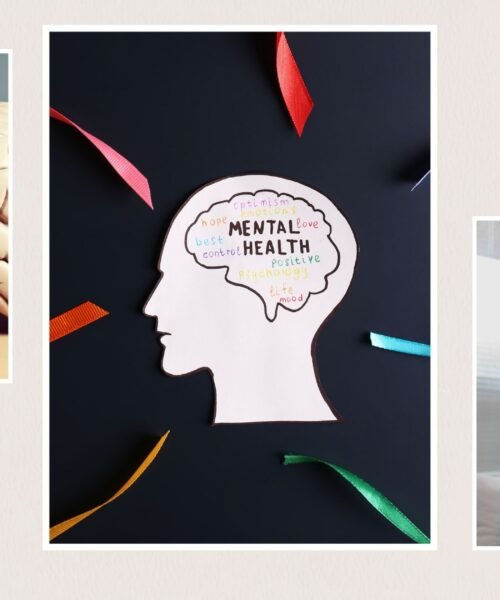Digital Marketing Stress: How to Manage Your Mental Health
Digital marketing is a dynamic and fast-paced field that involves promoting products or services through digital channels. While it offers exciting opportunities, it also comes with its own set of challenges that can impact mental health. In this article, we will explore the causes of digital marketing stress and provide practical strategies to manage it effectively.
Understanding Digital Marketing Stress
Digital marketing stress refers to the physical, emotional, and mental strain experienced by professionals in the field. Common stressors include tight deadlines, constantly changing algorithms, and high competition. These stressors can lead to burnout, anxiety, and other mental health issues if not managed properly.
Identifying Symptoms of Stress
Recognizing the symptoms of stress is the first step in managing it. Symptoms can be categorized into physical, emotional, and behavioral:
- Physical Symptoms: Headaches, fatigue, muscle tension, and sleep disturbances.
- Emotional Symptoms: Anxiety, irritability, mood swings, and feelings of overwhelm.
- Behavioral Symptoms: Procrastination, changes in appetite, social withdrawal, and decreased productivity.
Causes of Stress in Digital Marketing
Several factors contribute to stress in digital marketing:
- High Expectations and Deadlines: The pressure to meet tight deadlines and achieve high performance can be overwhelming.
- Constantly Changing Algorithms: Keeping up with frequent changes in algorithms and trends requires continuous learning and adaptation.
- Competition and Performance Pressure: The competitive nature of digital marketing can create a sense of urgency and pressure to outperform others.
- Work-Life Balance Challenges: The demand for constant availability can blur the lines between work and personal life.
Strategies to Manage Digital Marketing Stress
Implementing effective stress management strategies can help alleviate the impact of stress:
- Time Management Techniques: Prioritize tasks, create a schedule, and break down large projects into manageable steps.
- Setting Realistic Goals: Set achievable goals and avoid overcommitting to prevent burnout.
- Prioritizing Tasks: Focus on high-priority tasks and delegate when possible.
- Taking Breaks and Downtime: Regular breaks and downtime are essential for recharging and maintaining productivity.
Mindfulness and Relaxation Techniques
Incorporating mindfulness and relaxation techniques can help reduce stress:
- Meditation and Breathing Exercises: Practice meditation and deep breathing exercises to calm the mind and reduce anxiety.
- Yoga and Physical Activity: Engage in yoga or other physical activities to release tension and improve overall well-being.
- Mindfulness Practices: Practice mindfulness to stay present and focused, reducing stress and enhancing mental clarity.
Building a Support System
Having a strong support system is crucial for managing stress:
- Seeking Professional Help: Consult with a therapist or counselor for professional guidance and support.
- Connecting with Peers and Mentors: Build relationships with peers and mentors who can offer advice and encouragement.
- Joining Support Groups: Participate in support groups to share experiences and gain insights from others facing similar challenges.
Creating a Healthy Work Environment
A healthy work environment can significantly impact stress levels:
- Ergonomic Workspace Setup: Ensure your workspace is ergonomically designed to prevent physical strain.
- Healthy Eating and Hydration: Maintain a balanced diet and stay hydrated to support overall health.
- Regular Exercise and Movement: Incorporate regular exercise and movement into your daily routine to boost energy and reduce stress.
Balancing Work and Personal Life
Achieving a balance between work and personal life is essential for mental health:
- Setting Boundaries: Establish clear boundaries between work and personal time to prevent burnout.
- Scheduling Personal Time: Allocate time for personal activities and relaxation to recharge.
- Engaging in Hobbies and Interests: Pursue hobbies and interests outside of work to maintain a healthy work-life balance.
Utilizing Technology for Stress Management
Technology can be a valuable tool for managing stress:
- Stress Management Apps: Use apps designed to help manage stress through guided meditation, breathing exercises, and relaxation techniques.
- Productivity Tools: Utilize productivity tools to streamline tasks and improve efficiency.
- Digital Detox Practices: Take regular breaks from digital devices to reduce screen time and prevent digital fatigue.
Developing Resilience and Coping Skills
Building resilience and coping skills can help you navigate stress more effectively:
- Building Emotional Resilience: Develop emotional resilience by practicing self-awareness and emotional regulation.
- Learning Coping Mechanisms: Learn and implement coping mechanisms to manage stress in a healthy way.
- Practicing Self-Compassion: Be kind to yourself and practice self-compassion to reduce self-criticism and enhance well-being.
Importance of Sleep and Rest
Adequate sleep and rest are vital for mental health:
- Establishing a Sleep Routine: Create a consistent sleep routine to improve sleep quality.
- Creating a Restful Environment: Ensure your sleep environment is conducive to rest and relaxation.
- Avoiding Sleep Disruptors: Limit exposure to screens and stimulants before bedtime to promote better sleep.
Maintaining a Positive Mindset
A positive mindset can help you manage stress more effectively:
- Positive Affirmations: Use positive affirmations to boost confidence and reduce negative thinking.
- Gratitude Practices: Practice gratitude to shift focus from stressors to positive aspects of life.
- Focusing on Achievements: Celebrate your achievements and progress to maintain motivation and positivity.
Conclusion
Managing stress in digital marketing is essential for maintaining mental health and overall well-being. By implementing the strategies outlined in this article, you can effectively manage stress and create a healthier, more balanced life. Remember to prioritize your mental health and seek support when needed.
FAQs
1. What are the common stressors in digital marketing?
A: Common stressors include tight deadlines, constantly changing algorithms, high competition, and work-life balance challenges.
2. How can I identify if I am stressed?
A: Look for physical symptoms (headaches, fatigue), emotional symptoms (anxiety, irritability), and behavioral symptoms (procrastination, social withdrawal).
3. What are some effective stress management techniques?
A: Effective techniques include time management, setting realistic goals, taking breaks, practicing mindfulness, and seeking support.
4. How can I balance work and personal life?
A: Set boundaries, schedule personal time, and engage in hobbies and interests outside of work.
5. Why is sleep important for mental health?
A: Adequate sleep is crucial for mental health as it helps improve mood, cognitive function, and overall well-being.










